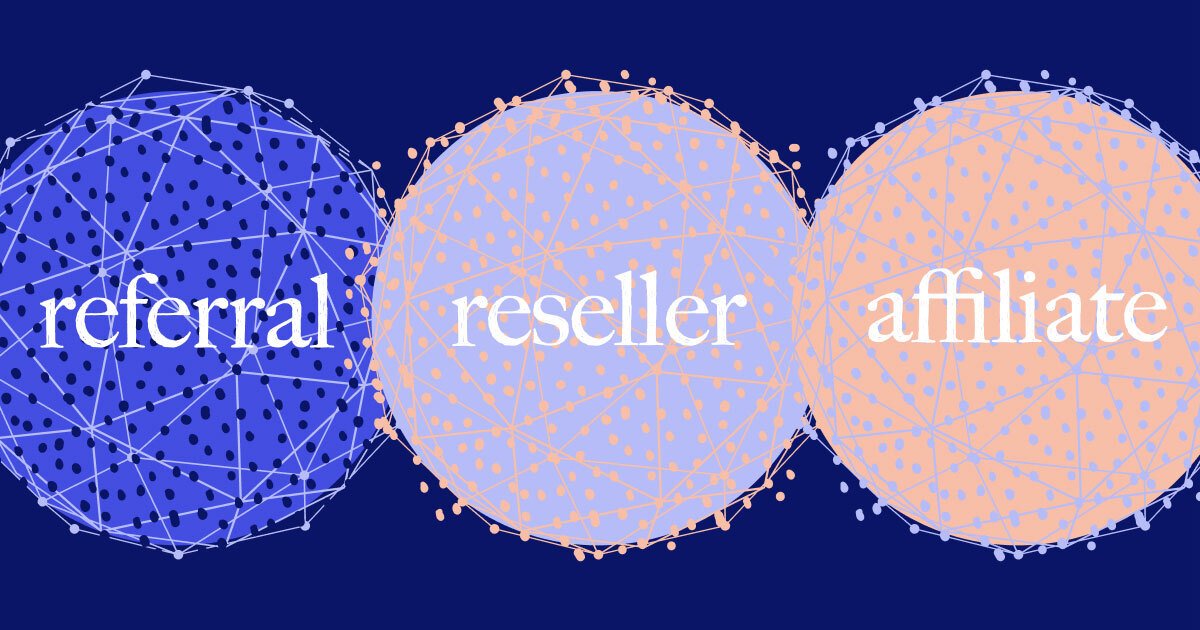In today’s competitive business landscape, attracting new customers can be an uphill battle. With so many options available, consumers are more discerning than ever before. They’re looking for businesses that they can trust, businesses that come recommended by people they know and respect.
This is where referral marketing system comes in. Referral marketing is a powerful strategy that leverages the trust and credibility of your existing customers to attract new ones. When a satisfied customer refers your business to their friends, family, or colleagues, you’re essentially getting a free endorsement from someone who is already familiar with your brand and has a positive experience with your products or services.
Word-of-mouth marketing has been around for centuries, but it’s only recently that businesses have begun to realize its true potential. Thanks to the rise of social media and online review platforms, it’s now easier than ever for customers to share their experiences with businesses and recommend them to others.
The Power of Referrals: Why They Matter in Today’s Market

In today’s competitive market, businesses are constantly looking for ways to attract new customers and grow their revenue. One of the most effective ways to do this is through referrals. Referrals are a form of word-of-mouth marketing where satisfied customers recommend your business to their friends, family, and colleagues.
1. Why Referrals Matter in Today’s Market
There are several reasons why referrals are so important in today’s market:
- Trust: People are more likely to trust recommendations from people they know and trust.
- Credibility: Referrals can help to build your business’s credibility and reputation.
- Cost-effectiveness: Referrals are a cost-effective way to reach new customers.
- Scalability: Referrals can be easily scaled to reach a larger audience.
2. How to Build a Strong Referral Marketing System
There are several things you can do to build a strong referral marketing system:
- Provide excellent customer service: The foundation of a successful referral marketing system is excellent customer service. When your customers are happy, they are more likely to recommend your business to others.
- Ask for referrals: Don’t be afraid to ask your customers for referrals. You can do this in person, over the phone, or through email.
- Make it easy for customers to refer your business: Make it easy for your customers to refer your business by providing them with referral cards, links, or social media buttons.
- Track your results: Track the number of referrals you receive and the revenue they generate. This will help you to measure the effectiveness of your referral marketing system.
The Future of Referral Digital Marketing: Trends in 2024
Building a Strong Referral Network: Strategies for Success

Building a robust referral network is a cornerstone of any successful business. A well-executed referral marketing system can significantly boost sales, enhance brand credibility, and foster long-term customer relationships. In this guide, we’ll delve into effective strategies for establishing and nurturing a thriving referral network.
1. Cultivate Strong Relationships:
At the heart of any successful referral marketing system lies the cultivation of strong relationships. Invest time and effort in building rapport with existing customers, partners, and industry influencers. Genuine connections are the foundation upon which successful referrals are built. Regular communication, personalized interactions, and exceptional customer service are key in fostering trust and loyalty.
2. Incentivize Referrals One of the most effective ways to encourage referrals is by offering incentives. Whether it’s discounts, exclusive offers, or rewards programs, incentivizing referrals provides an added motivation for customers to recommend your products or services to others. Design your referral marketing system to reward both the referrer and the new customer, creating a win-win scenario that encourages ongoing participation.
3. Leverage Technology:
Harness the power of technology to streamline your referral marketing system. Implementing referral tracking software allows you to monitor and manage referral activities efficiently. Automation tools can help streamline the referral process, making it easier for customers to refer others and for you to track and reward successful referrals. By leveraging technology, you can scale your referral program and maximize its impact.
4. Provide Exceptional Value:
The cornerstone of any successful referral marketing system is providing exceptional value to both referrers and their referrals. Ensure that your products or services meet or exceed customer expectations, delivering tangible benefits that compel customers to share their positive experiences with others.
By consistently delivering value, you not only incentivize referrals but also foster a loyal customer base that is eager to advocate for your brand.
5. Foster a Culture of Advocacy:
Encourage and empower your existing customers to become advocates for your brand. Provide them with the tools and resources they need to share their experiences with others effectively.
Whether it’s through social media sharing, online reviews, or word-of-mouth recommendations, create opportunities for customers to amplify their voices and contribute to your referral marketing system’s success. By fostering a culture of advocacy, you can turn satisfied customers into enthusiastic brand ambassadors.
Referral Marketing Guide: The Guide to Boosting Referrals
Creating a Referral-Friendly Culture: Encouraging Advocates

Creating a referral-friendly culture is essential for the success of any referral marketing system. Here are some tips for creating a referral-friendly culture in your organization:
1. Make Referrals a Priority
Make it clear to your employees that referrals are a priority for your company. Communicate the importance of referrals to your employees and explain how they can help to grow the business.
2. Recognize and Reward Employees for Referrals
Recognize and reward employees who generate referrals. This will show your employees that you appreciate their efforts and encourage them to continue referring new customers.
3. Make it Easy for Employees to Refer Customers
Make it easy for your employees to refer customers by providing them with the tools and resources they need. This could include referral cards, links, or social media buttons.
4. Encourage Employees to Network
Encourage your employees to network with other businesses and professionals in their industry. This will help them to build relationships that can lead to referrals.
5. Provide Excellent Customer Service
The foundation of a referral-friendly culture is excellent customer service. When your customers are happy, they are more likely to refer your business to others.
Make sure that you are providing your customers with the best possible experience, from the moment they first contact you until after they have purchased your product or service.
6. Empower Your Employees
Empower your employees to make decisions and take action on referrals. This will show your employees that you trust them and that you value their input.
7. Celebrate Referrals
Celebrate referrals when they happen. This will show your employees that you appreciate their efforts and that you are excited about the growth of your business.
Emerging Trends in Referral Marketing Companies
Tracking and Measuring Referral Success: Metrics That Matter

Referral marketing systems are pivotal to the growth of businesses across various industries. However, to harness their full potential, tracking and measuring their success is essential. Here are the key metrics that matter:
1. Referral Conversion Rate: The cornerstone of any referral marketing system, the referral conversion rate measures the percentage of referred leads that convert into paying customers. This metric indicates the effectiveness of your referral program in generating tangible results.
2. Referral Traffic:
Monitoring the volume and quality of traffic generated through referrals is crucial. By analyzing referral traffic, you can evaluate the reach and engagement of your referral marketing system across different channels and platforms.
3. Referral Sources:
Understanding where your referrals are coming from provides valuable insights into the most effective channels and sources of referrals. Tracking referral sources enables you to allocate resources strategically and optimize your referral marketing system accordingly.
4. Referral Reward Cost:
While incentives are integral to motivating referrals, it’s essential to measure the cost associated with referral rewards. This metric helps in assessing the profitability and sustainability of your referral marketing system.
5. Referral Engagement Rate:
Beyond conversion, measuring the level of engagement among referred customers is vital. A high referral engagement rate indicates that referred customers are actively participating and contributing to the growth of your business.
6. Referral Lifetime Value (RLV):
Calculating the lifetime value of referred customers provides insights into their long-term impact on your business. By quantifying the RLV, you can determine the overall ROI of your referral marketing system and tailor strategies to maximize its effectiveness.
7. Referral Feedback and Satisfaction:
Soliciting feedback from both referrers and referees offers valuable insights into the user experience and satisfaction with your referral marketing system.
Incorporating feedback into system enhancements can foster greater engagement and loyalty among participants.
8. Referral Churn Rate:
Just as with any customer acquisition channel, it’s crucial to monitor the referral churn rate—the rate at which referred customers disengage or stop using your product or service.
Identifying and addressing factors contributing to referral churn is essential for sustaining the success of your referral marketing system.
The Secrets of Successful Referral Marketing Strategy 2024

